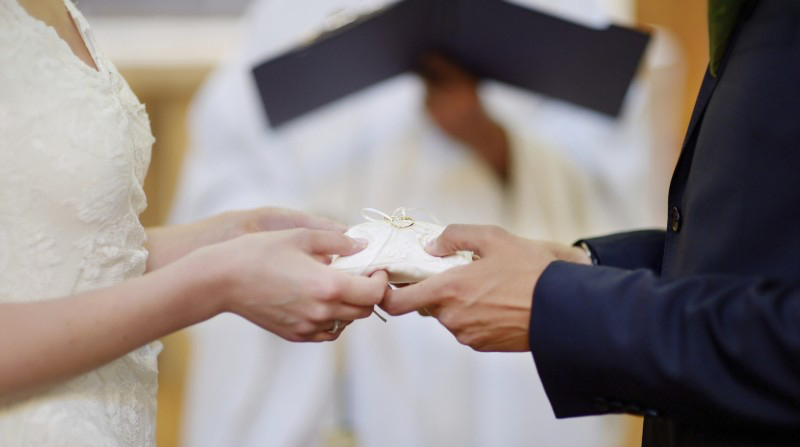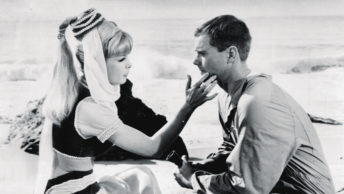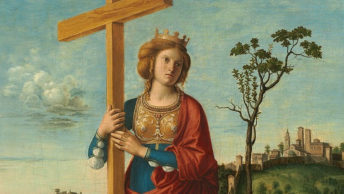On Black Friday, advertisers coax us to purchase gifts to be given at Christmas. Today, however, other gifts are sorely missing in our society—children. Based on ongoing research conducted by the Heritage Foundation, fertility rates have now declined below population replacement levels. Should this trend continue, we will ultimately see an aging population coupled with fewer workers to pay for social support systems such as Medicare and Social Security. As one who follows demographic trends and has taught college economics for more than thirty years, I am acutely aware that there are fewer children in our midst. My colleagues and I wonder: With plummeting fertility rates and fewer marriages, who will be tomorrow’s workers? And without tomorrow’s workers, who will pay for social benefits (for “seasoned citizens”) in just a generation? Over lunch, a twenty-four-year old man put it this way: “The generation before me marries later and has only a few children, if any. And my generation? We desire marriage even less and view children as a reality that will hinder our personal happiness.”
While all this sounds rather hopeless, I say not so fast. Although it is true that fewer numbers of couples are choosing to marry, those that I encounter desiring a church wedding are inspiring. For it is they who have seen and come to reject the products of a culture that promotes “me” around every corner. The women, especially, are familiar with the so-called “baby daddy’s” in their midst. They have also witnessed the many ways that lawyers and judges and courts have thrown marriage into the air as if it is they who define it. Rightly so, these young couples are rejecting that way—for a better way!
So, what’s next?
Generally, it begins with a phone call to the parish or an introduction after Mass. The couple says hello and declares: “We want to get married!” And I respond: “Great. You’re in love. Tell me about it.” And it begins. In preparing couples for marriage in the Catholic Church, a period that lasts a minimum of six months, I initially read them the definition of marriage provided us in Canon Law (1055):
The marriage covenant, by which a man and a woman establish between themselves a partnership of their whole life, and which of its own very nature is ordered to the well-being of spouses and to the procreation and upbringing of children, has, between the baptized, been raised by Christ the Lord to the dignity of a sacrament.
Immediately thereafter, we head into the church and run through the elements of the Rite of Marriage. We discuss the flow of the ritual: procession, welcoming, introductory prayer, readings, and homily. And then we walk to the foot of the altar where they will make their consent:
I, N., take you, N., to be my husband (wife). I promise to be true to you in good times and in bad, in sickness and in health. I will love you and honor you all the days of my life.
Powerful, don’t you think? I ask them whether they have ever heard such words. And then I note that they are the ministers of the sacrament—not the priest or deacon. They say the words. They make the commitment. The priest or deacon is there to receive their consent and bless their union. During the next six months, we always begin our time together with those words, for they are unlike any others we will encounter this side of heaven.
Four Unique Ways
Catholics affirm that marriage is a gift that comes from the very hand of God. Through the witness of the married couple, marriage expresses itself in FOUR unique ways: (1) It unites a couple in faithful and mutual love; (2) It opens a couple to giving life; (3) It is a way to respond to God’s call to holiness; and (4) It calls the couple to be a sign of Christ’s love in the world.
Regarding faithful and mutual love, we ponder what it means to be faithful. With God, we see His faithfulness through the covenants He has made with His people. Unlike contracts, they never change. Though we may be unfaithful, He always remains faithful. Regarding mutual love, we ask ourselves whether an embrace of this type of love requires an abandonment of forms of love we once believed in. Just how does it happen that two become one flesh?
Regarding life-giving love, we note the ways couples are called to pour themselves out for each other. Their sexuality is not recreational. Rather, it is life giving! Their love has the potential to create new life and the foundations for a new family and domestic church. This is where love will be learned and shared. St. Pope John XXIII summed it up this way: “The family, grounded on marriage freely contracted, monogamous and indissoluble, is and must be considered the first and essential cell of human society.” Likewise, St. Pope John Paul II declared: “As the family goes, so goes the nation, and so goes the whole world in which we live.” Without life-giving love, we are nowhere.
Regarding God’s call to holiness, the Greatest Commandment is our battle cry. For the married couple, their call to holiness emanates from their relationship with spouse, children, and family. For it is there they are called to minister to one another. It is there they find ultimate fulfillment. As the 14th century Dominican, Meister Eckhart, noted: “It is not what we do that makes us holy. We make holy what we do.” As such, the ordinary tasks of everyday life become extraordinary! In doing them for others, we embrace God’s call to holiness found within the Sacrament of Marriage.
Lastly, married couples are called to be signs of Christ’s love in the world. In looking around, there are many signs. Married couples, however, are called to be the sign! Their love is called to be sacrificial and always pointed to the Cross. For the Cross is the way that Jesus has shown us all we need to know about sacrificial love: “There is no greater love than this, to lay down one’s life for his friends.”
May our daily sacrifices on behalf of others be a sign that there is another way—another path. Today, more than ever, our world needs strong marriages and families. These gifts to our spouses, families, friends, and world are not gifts that may be purchased at a store. Rather, they are gifts of our very self. As such, only we can give them. Truly, they are gifts with eternal consequences.








